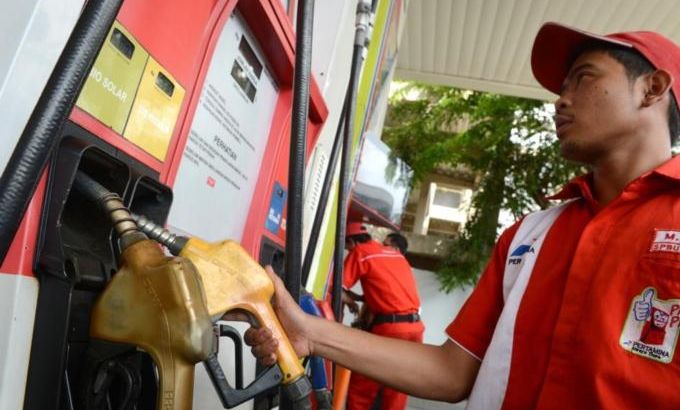
Pay-out or pay-off for Indonesia’s poor?
As the country hands out cash to offset rising fuel costs, we analyse whether this will help or harm the poor.
Indonesia is handing out cash to millions of its poorest people to offset the effects of the rising cost of fuel. Prices are increasing by up to 44 percent, as costly state subsidies are cut back.
The world’s fourth most populous nation had been enjoying some of the cheapest fuel in the world. But it has been hurting the economy.
How effective the hand-outs are going to be remains to be seen. But certainly giving cash directly to poor people, if helping poor people is your aim, is much more effective than subsidising the price of gasoline.
The budget, approved on Monday, sets the 2013 fuel subsidy at $20.2bn. That is down from $21.4bn last year. It had been forecast to reach $23bn.
Keep reading
list of 4 itemsEcuador weighs security, international arbitration in latest referendum
‘Triple spending’: Zimbabweans bear cost of changing to new ZiG currency
Boeing hit with 32 whistleblower claims, as dead worker’s case reviewed
To cushion the rise in prices at the pump, the president is handing out more than $900m to around 15 million of Indonesia’s poorest families. That breaks down to $15 a month for four months, but the money can be spent on anything from fuel and food to cigarettes and cell phones.
Indonesia is not alone in addressing costly state subsidies.
Egypt spent some $20bn on subsidies last year – almost 10 percent of its entire economic output.
It is now considering reforms to meet conditions of a $4.8bn loan from the International Monetary Fund. Latest figures show Venezuela racked up an annual bill of $27bn on fuel subsidies.
It has vast crude oil reserves, but needs to import gasoline because of soaring domestic demand.
India’s fuel subsidy bill was $34bn last year, something it is actively trying to reduce through cash handouts to the poor.
Indonesia is among the top 25 oil-producing nations in the world, but spends more money importing oil than it receives from its exports.
So, is this a pay-out or a pay-off for Indonesia’s poor? And how effective will these cash hand-outs be for Indonesia?
To discuss this, Inside Story, with presenter Ghida Fakhry, is joined by guests; Paul Rowland, the National Democratic Institute’s representative for Indonesia; and Christopher Beaton, a research analyst for the International Institute for Sustainable Development.
|
“Certainly it’s very difficult to reform fuel price subsidies, and fuel price subsidies are a problem for the poor in Indonesia; they cost a very large amount, over 20 percent of government spending this year is likely to be spent on fuels subsidies alone, rather than on other priorities such as healthcare, education, infrastructure, so reforming them … it’s a big step and creates many opportunities.” – Christopher Beaton, a research analyst for the International Institute for Sustainable Development. |